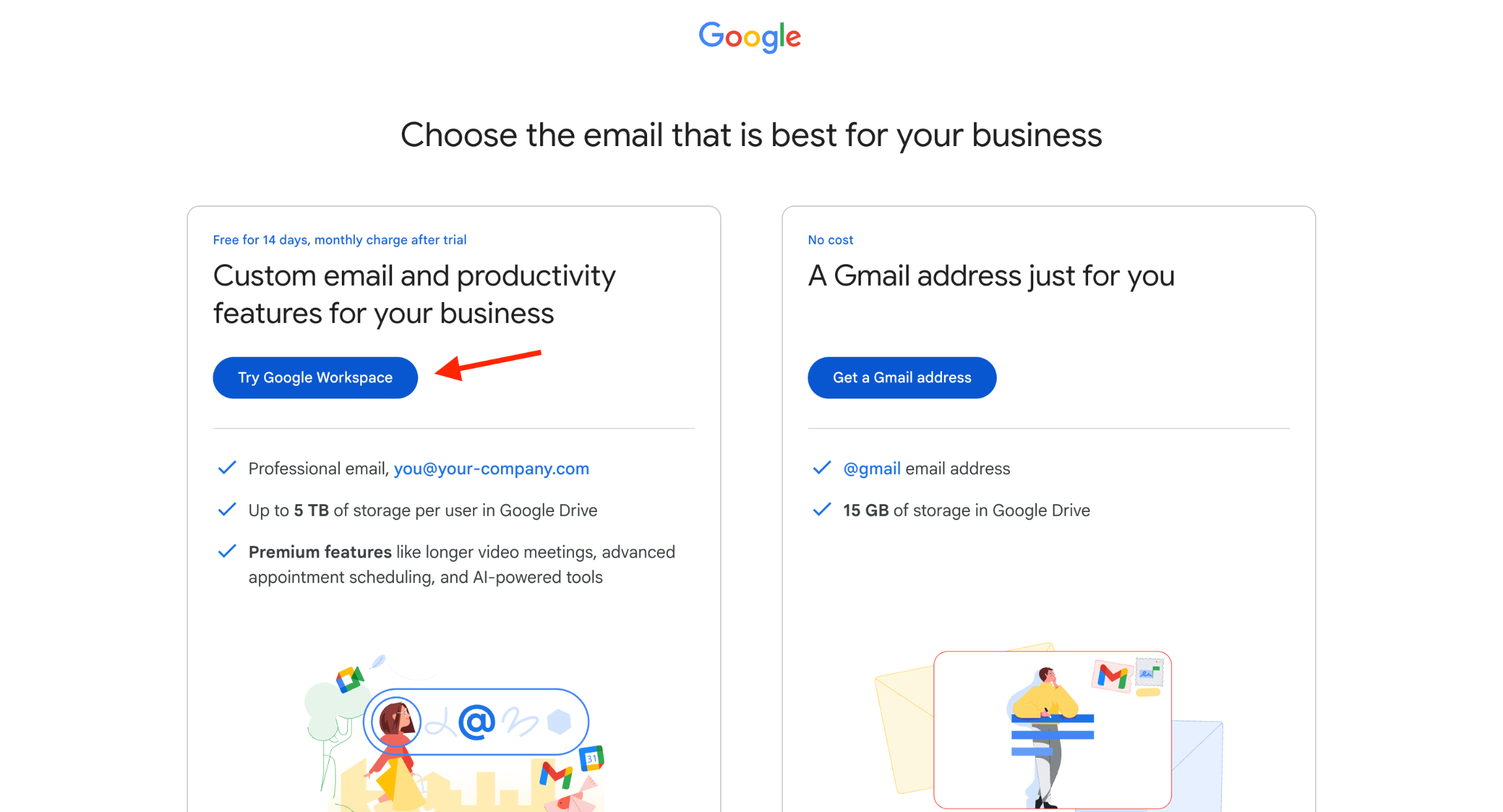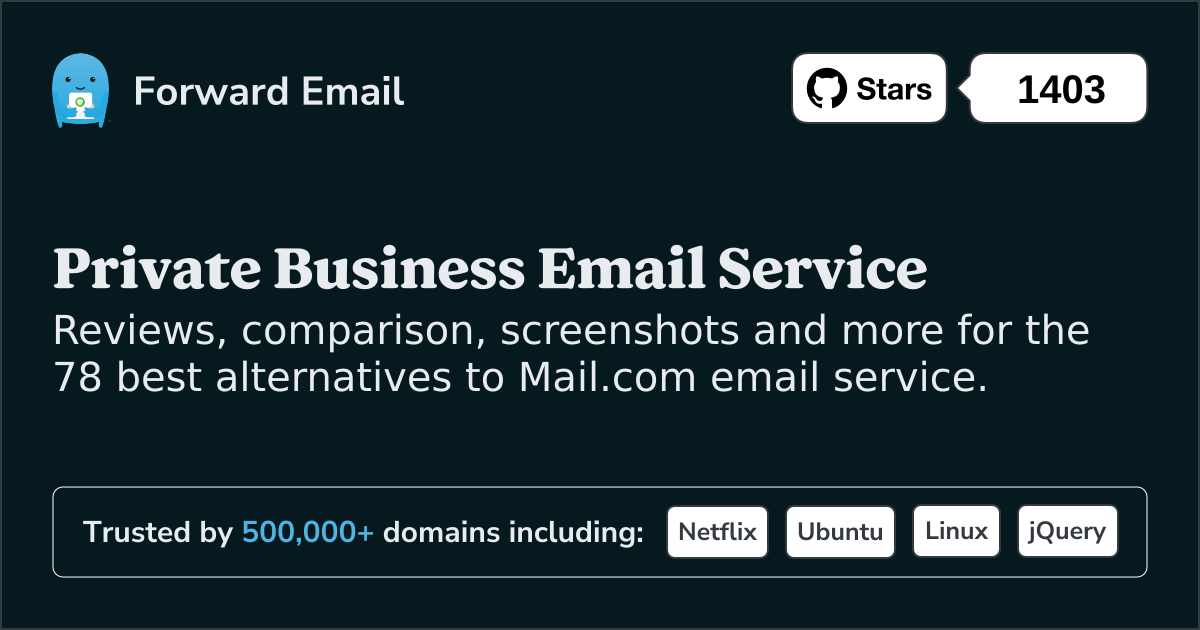Choosing the best email address for your business isn’t just about having a way to send and receive messages. It’s about making a strong first impression every time you reach out to clients, partners, or suppliers.
Your email address speaks volumes about your professionalism and trustworthiness before anyone even reads your message. If you want to stand out and build credibility fast, the right email address can make all the difference. Keep reading to discover how to create an email address that boosts your brand and helps your business grow.

Credit: fitsmallbusiness.com
Choosing The Right Domain
Choosing the right domain for your business email is a key step. It affects how customers see your brand and trust your messages. Your domain name is part of your email address, like info@yourbusiness.com. Picking the right domain helps you look professional and build a strong brand.
Business Domain Vs Free Email Services
Free email services like Gmail or Yahoo are easy to use. They cost nothing and work quickly. But they lack a professional touch. Emails from free accounts can look less trustworthy to clients.
Business domains give you a custom email address with your brand name. This builds trust and shows you are serious. It helps customers remember your business better. A business domain is a small investment with big benefits.
Custom Domains For Brand Identity
A custom domain matches your website and business name. This consistency makes your brand more visible. It shows you care about your company’s image. Custom domains make emails easy to recognize and harder to ignore.
Using a custom domain also helps with marketing. Your email address acts like a mini billboard. It reminds people who you are with every message. This can increase customer loyalty and repeat business.
Professional Email Formats
Choosing the right professional email format helps your business look reliable and organized. It shows customers you take communication seriously. Clear email formats also make it easier for people to reach the right person fast.
Good email formats balance professionalism and simplicity. They represent your brand well and keep messages easy to understand. The right format depends on your business size and team structure.
Using Your Name Vs Role-based Addresses
Emails with your name feel personal and direct. For example, john.doe@company.com sounds friendly and clear. It works well for small teams or client-facing roles.
Role-based addresses use job titles like support@company.com or sales@company.com. These emails suit larger teams or departments. They help route messages to the correct group quickly.
Both types have benefits. Personal emails build trust. Role-based emails improve efficiency. Choose what fits your business style and needs.
Consistency Across Teams
Using the same email format across your team looks neat and professional. It builds brand unity and avoids confusion.
For example, if one email is first.last@company.com, keep that for everyone. Changing formats can cause mistakes and lost emails.
Set a clear rule for all employees. Train new hires on the format. This simple step boosts your company’s image and communication flow.
Email Security Essentials
Email security is a must for every business email address. It protects your company from cyber threats. Secure emails keep your data safe and build trust with clients. Simple steps can stop many common email attacks. Understanding key security tools helps you stay safe online.
Using the right email security measures reduces risks. These tools work together to block fake emails and prevent data theft. Learning about them helps you protect your business email better.
Implementing Spf, Dkim, And Dmarc
SPF, DKIM, and DMARC are three important email security protocols. SPF tells servers which IPs can send emails for your domain. DKIM adds a digital signature to emails, proving they are real. DMARC checks SPF and DKIM and tells servers what to do with fake emails. Setting these up helps stop spammers from using your email address. These protocols improve email trust and reduce spam risks.
Preventing Phishing And Spoofing
Phishing tricks people into giving private info by fake emails. Spoofing makes emails look like they come from you. Both can harm your business and customers. Use strong filters to catch phishing emails early. Train staff to spot suspicious messages and never click unknown links. Check email headers and sender details carefully. Good email security stops these attacks and protects your business reputation.
Building Trust With Email
Building trust with email is crucial for any business. Your email address and how you present yourself can shape how people see your brand. A trustworthy email makes customers feel safe. They are more likely to open your messages and respond. Trust helps build strong relationships and grows your business over time.
Clear And Recognizable Sender Names
Use a sender name that your audience will easily recognize. Avoid using only your email address as the sender name. Instead, use your business name or a real person’s name from your team. This makes your emails feel personal and official. Clear sender names reduce the chance of emails ending up in spam. They help your emails stand out in crowded inboxes.
Using Branded Signatures
Include a branded signature at the end of every email. This shows professionalism and strengthens your brand identity. Your signature should have your name, job title, company name, and contact details. Adding your company logo can improve recognition. A consistent signature reassures recipients that the email is genuine. It also makes it easy for them to contact you back.
Choosing The Right Email Provider
Choosing the right email provider is vital for business success. Your email is the main way to communicate with clients and partners. A good provider ensures smooth, safe, and fast email delivery. It impacts your brand’s professionalism and customer trust.
Not all email services are equal. Some offer better uptime and support. Others provide useful features for managing emails effectively. Understanding these factors helps select the best option for your business needs.
Reliability And Uptime
Reliable email means your messages always reach the inbox. Downtime can cause missed opportunities and lost trust. Choose a provider with strong uptime guarantees. Look for services with 99.9% or higher uptime. This ensures your email works without interruption.
Check user reviews for real reliability reports. Some providers offer data backups and spam filtering. These features protect your email and keep it running smoothly. Stability matters most in business communication.
Customer Support And Features
Good customer support helps solve problems fast. Choose a provider with 24/7 support. Easy access to help saves time and stress. Some providers offer live chat, phone, or email support.
Extra features improve email management. Look for calendar integration, mobile access, and security tools. These tools boost productivity and protect your data. A provider with useful features makes business email easier and safer.

Credit: forwardemail.net
Maintaining Email Reputation
Maintaining a good email reputation is key for any business email address. It helps your emails reach the inbox, not the spam folder. A strong reputation builds trust with email providers and customers. Poor habits can hurt your reputation fast. Stay clear of common mistakes to protect your sender score. This keeps your business communication smooth and effective.
Avoiding Spam Triggers
Spam triggers are words and practices that make emails look suspicious. Avoid using all caps, too many exclamation points, or deceptive subject lines. Keep your content clear and honest. Use a familiar sender name and email address. Avoid sending emails in bulk without segmentation. These steps reduce the chance of being marked as spam.
Regularly Cleaning Email Lists
Old or incorrect email addresses can hurt your reputation. Remove inactive or bounced emails from your list often. This improves your delivery rates and lowers complaints. Ask subscribers to confirm their interest with re-engagement campaigns. A clean list means you send emails only to people who want them. This keeps your sender score healthy and your emails welcomed.
Tips For Effective Business Communication
Effective communication is key to building trust and strong relationships in business. Clear and respectful emails help avoid misunderstandings. They also make your business appear professional and reliable.
Good email habits improve teamwork and customer satisfaction. They save time and keep messages focused. Following simple tips can make your emails more effective and pleasant to read.
Crafting Professional Emails
Start with a clear subject line that shows the email’s purpose. Use a polite greeting and introduce yourself if needed. Keep sentences short and easy to understand. Avoid slang or complicated words. Use bullet points to organize information. End with a clear call to action or next step. Always proofread for spelling and grammar mistakes.
Responding Promptly And Courteously
Reply to emails within 24 hours to show respect for others’ time. Use a friendly tone even if the message is about a problem. Thank the sender for their message or feedback. Address all questions and concerns carefully. If you need more time, send a quick note to explain. Polite and timely responses build trust and good reputation.
Credit: medium.com
Conclusion
Choosing the right email address builds trust with clients and partners. A clear, professional email shows your business is serious. Keep your address simple, easy to remember, and linked to your domain. Avoid using personal or free email services for business use.
This helps you look more credible and organized. Take time to pick an email that fits your brand and goals. A good email address supports your business growth and communication. Small details like this make a big difference.